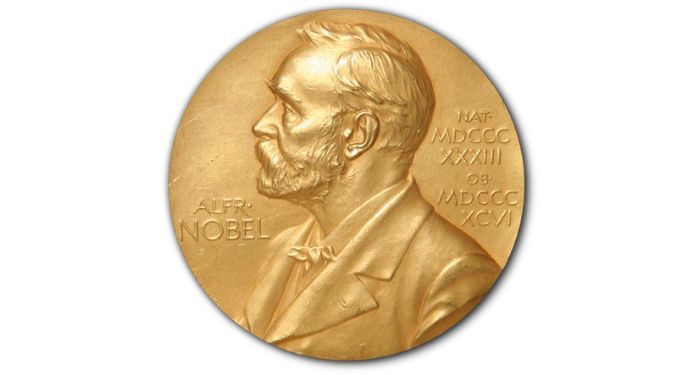
An Introduction to the Nobel Prize in Literature
The Nobel Prize in Literature is one of the most prestigious literary prizes in the world. The Swedish Academy has awarded it since the prize’s inception in 1901. It recognizes authors’ bodies of work and brings their work to worldwide audiences. It’s also had scandals and controversies, including criticism for favoring European authors.
The award’s founder, Alfred Nobel, was a Swedish inventor who was born in 1833. He invented dynamite and blasting caps. In 1888, French newspapers erroneously published his obituary. One headline read: “Le marchand de la mort est mort” (“The merchant of death is dead.”) Some historians speculate that this error may have made Nobel consider his legacy and how his inventions had been used in warfare. We’ll never know his exact motivations, but he had a lifelong interest in the arts and sciences.
When was the Nobel Prize in Literature first awarded?
Before his death in 1896, Nobel willed most of his fortune of 31 million Swedish kronor to be “distributed annually in the form of prizes to those who during the preceding year have conferred the greatest benefit to mankind.” These guidelines are intentionally vague and subjective, allowing broad interpretations. Nobel’s funds created the Nobel Prizes in chemistry, physics, medicine, literature, and peace. An Economics prize was added in 1969. In 1901, French poet Sully Prudhomme received the first Nobel Prize in Literature.
The Nobel Prize in Literature is traditionally presented annually on December 10, the anniversary of Nobel’s death. There have been several years for which no Nobel Prize in Literature was awarded, most recently 1943. In 2019, after being postponed for a year, the awards for 2018 and 2019 were announced together.
What country has the most Nobel Prize winners?
As of 2022, France has the most winners of the Nobel Prize in Literature, with 16. This chart lists 17, counting Jean-Paul Sartre, who declined the Nobel in 1964, along with any other awards he was offered. Many people have criticized the Literature Prize as male-dominated and Eurocentric, saying that male authors and European authors, particularly Scandinavian authors, are over-represented compared to the rest of the world.
How do you win a Nobel Prize for Literature?
Every year, the Nobel Committee sends hundreds of letters to people qualified to nominate other writers for the literature prize. One cannot nominate oneself. Qualified nominators include members of the Swedish Academy and similar organizations, university literature professors, and past Nobel laureates. Then the nominators send their nominations to the Academy. The Academy narrows this down to a long list, then to one laureate.
The nomination process is secretive. Details of the nominations are not revealed until 50 years later.
How much money is the Nobel prize for literature?
In 2022, the Literature Prize amount was 10 million Swedish kronor. When I checked the exchange rate in January 2023, this was about $959,000 USD.
Legacy and Controversies
The Nobel Prize in Literature is an international touchstone with a huge impact on the publishing industry. So, inevitably, it has been controversial since its inception. It has been contentious for its omissions as much as its choices. This 2012 Wall Street Journal article lists James Joyce, Marcel Proust, and Leo Tolstoy among the many acclaimed writers who never received a Nobel Prize.
The Prize is often criticized as Eurocentric. In 2008, Swedish Academy secretary Horace Engdahl exacerbated this controversy by saying, “You can’t get away from the fact that Europe still is the center of the literary world.” Engdahl had been the permanent secretary but was replaced the next year.
In 2016, Bob Dylan was awarded the Nobel Prize in Literature. I’m personally a big fan of Bob Dylan, Toni Morrison, Kazuo Ishiguro, and many other Nobel laureates. Dylan’s lyrics are fascinating and can be read as poetry. However, there’s no Nobel category for music. So, like many other fans, I considered him a baffling choice for the literature prize. I don’t think any senses or art forms are better than others, but Dylan’s primary medium is songs that combine music and lyrics, not writing alone.
In 2018, the Literature Prize was postponed for a year after Jean-Claude Arnault, the husband of Academy member Katarina Frostenson, was accused of sexual assault in 2017. Arnault was later convicted on two counts of rape. Other contributing factors were the accusations of financial misconduct and conflicts of interest within the Swedish Academy.
One of the most controversial Nobel literature laureates was the 2019 winner, Austrian novelist Peter Handke. He had publicly denied and minimized the 1990s Bosnian genocide. Handke was a supporter and apologist of President Slobodan Milošević and even spoke at his funeral.
Winning a Nobel Prize can bring an author’s work to a broader international audience, ensuring their writing is translated and in print for years to come. When Abdulrazak Gurnah won the Literature Prize in 2021, his most recent novel, Afterlives, was not yet available in the U.S. That changed only after he became a Nobel Laureate. Overall, most Nobel winners are still European men, but the awards are becoming more diverse in the 21st century.
Read about the latest Nobel Laureate in Literature, French author Annie Ernaux.











